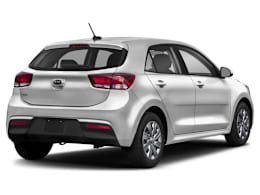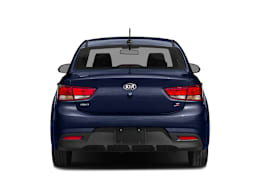The Kia Rio is among the better subcompacts, but it’s still basic transportation. It suffers from deficiencies endemic to this class, such as slow acceleration, a stiff ride, and a loud cabin.
The 1.6-liter four-cylinder engine gets the job done, but isn't notable in any way. The Rio can accelerate from 0 to 60 mph in just under 10 seconds, which makes it (like the similar Hyundai Accent) one of the quicker subcompacts. But drivers really need to step on the gas pedal to climb hills and to merge onto highways. At that point the engine gets buzzy and sounds coarse.
The Rio returned 33 mpg overall in our testing, which is good but no better than most compact sedans, such as the Toyota Corolla and Mazda3.
The Rio has safe, unexciting handling, even when pushed to its limits on our test track. But the driving experience is not in the same class as the Ford Fiesta or Honda Fit.
Our testers found the ride to be quite stiff, and the suspension has difficulty smoothing out large bumps that punch through to the cabin. On uneven pavement, the Rio moved in choppy motions. On the highway the raucous engine and elevated levels of road noise blend together in a constant din.
The cabin has basic trim and furnishings. Drivers will find the seats supportive enough for short trips, but they become tiring during long trips, partly because they lack adjustable lumbar support. The rear seat is cramped, but that isn’t any different than the rest of the class. Owners can easily flip down the rear seats to access the large, useful trunk pass-through. The Rio is also available as a hatchback for buyers who require more versatility.
One of the Rio’s high points are the easy to use controls, particularly the large knobs and buttons that are clearly labeled. The touch-screen infotainment system has straightforward logic.
Forward collision warning (FCW) and city speed automatic emergency braking (AEB) are available on the S trim.
The Rio is almost a twin to the Hyundai Accent, sharing its strengths and weaknesses. However, compared with the Accent, the Rio has slightly longer stopping distances and less handling agility.
Shoppers considering a new car in the $15,000-to-$20,000 range should be aware that there are plenty of great deals available on larger compact cars, which makes it easy to get more car for the same money. Our analysts have found that shoppers can buy a more substantial Hyundai Elantra or Toyota Corolla for roughly the same price as a new Rio.










